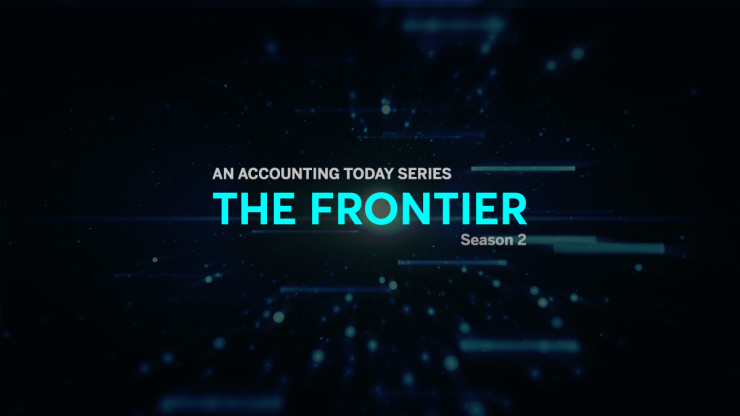Technology does not need to be specifically related to accounting to have deep impacts on accountants, both as individuals and a profession. In the same way that teleconferencing software wasn't built with accountants in mind yet has become vital to the way they work today, new advances will shape the industry whether it was made with the profession in mind or not.
A big reason for this is because, regardless of the technology in question, there is virtually always an accounting angle to find. Dr. Sean Stein Smith, a CPA and Lehman College professor who founded the Institute for Blockchain and Cryptoasset Research, pointed to the rapid growth of the "
"There are two questions that have not been answered. One, how are these self-driving everythings being paid for? Everything has a cost. So how will that work? How will the compensation model be structured? And how is all this information, terabytes of information out there, being processed, stored and analyzed?" he said. "So those questions [represent] tremendous opportunities. Not right now but by 2035 it will be something to have an eye on."
Kacee Johnson, vice president for strategy and innovation with CPA.com, said she was excited about the growth of green technology developed to address environmental issues like climate change. There are companies right now, she said, that capture natural gas flares and use them to power data centers or blockchains; she also brought up companies developing more sustainable packaging, such as cups made of seaweed. With these advances, there will also be more data captured about the environment and the impacts companies have upon it. Accountants already work to make sense of this kind of data, and as monitoring becomes more widespread and precise, accountants will be able to give even better insights into environmental, social and governance-related issues.
"As far as how accountants benefit, ESG is such a growing category for accounting and finance, especially with the recent Securities and Exchange Commission proposal [on climate disclosures] ... . Investors, venture capital and everyone else is pushing companies to be looking at this," she said.
Meanwhile, Kim Austin, director of global strategic accounting partnerships with Avalara, said she was particularly excited about new communications technologies; having already seen what teleconferencing solutions today can do, she was eager to see where things go. While things like Zoom and Teams have done much for collaboration, Austin said they lack a certain sense of presence.
Companies are already working to find ways to address this issue: Austin pointed to a recent meeting at Avalara's Seattle headquarters with team members from Germany and the U.K. The conference rooms there, she said, are all equipped with huge screens to give a life-sized view of meeting participants. On the other end, the conference rooms also have several cameras that allow remote participants to not just see a view of the big room but actually breaks down each person there and places them individually into their Zoom gallery. This, she said, has been an immense help for remote collaboration.
"This technology is an order of magnitude difference in experience and quality versus pre-pandemic technology, by making the comparison from the days where the remote people couldn't see (or often hear well at all), and were never visible in the room. You could get through a whole 2-hour meeting and forget there was even someone listening in to that black spaceship looking device on the center of the table. This all just happened so fast, out of sheer necessity," she said, though added that "It's also important to note though that with all the technology advances, one cannot physically make eye contact over video call. So while there are many reasons virtual meetings are wildly beneficial, I don't think they will ever truly replace face to face connections."
Other technologies have less of a direct impact on the accounting profession as a whole, but likely would still be useful for individual accountants. Wesley Hartman, director of technology at Kirsch Kohn & Bridge, as well as the founder of RPA solutions provider Automata, said he personally is very interested in the rise of 3D printing, especially for medical purposes. In the long term, he said, we could see an era where people will be able to print replacement organs on the spot.
"Now, I wouldn't say there's a direct benefit for accounting. But I would say there are accountants who might need an organ," he said. "It's more a passive benefit. I definitely think those passive benefits are definitely going to help everyone in society, which by extension means accountants, though hopefully they don't get to that situation," he said.
This story is part of the second season of the Accounting Today series called "The Frontier," where we explore the cutting edge of accounting technology through conversations with thought leaders across the country, who will share with us their observations, hopes, concerns and even a few predictions here and there.
See the rest of






